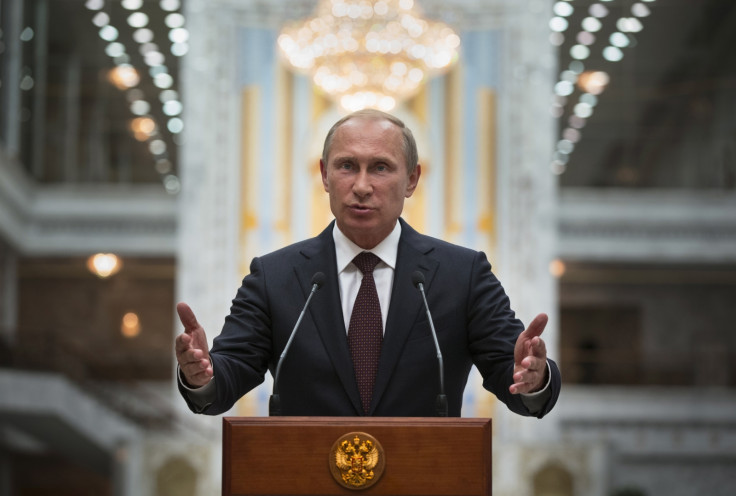Ukraine Crisis: Russia Successfully Test-Fires Nuclear Bulava Missile at Far East Target

Russia has conducted a successful test of its new Bulava intercontinental nuclear missile as tensions continue to rise with the Nato military alliance over the conflict in Ukraine.
Russian Naval Commander-in-Chief Admiral Chirkov said that the missile was launched from the White Sea and it had accurately struck its target in the country's Far East.
The Vladimir Monomakh submarine fired the missile near Russia's border with Finland and hit the target nearly 3,500 miles away on the Kamchatka peninsula north of Japan.
The head of Russia's naval forces confirmed that two more nuclear test launches are to take place in October and November.
"In October and November of this year, the naval fleet will carry out two more launches with two rocket cruisers equipped with ballistic missiles," Interfax quoted Chirkov as saying.
A Bulava missile is able to travel 8,000km (5,000 miles) and can hold up to 10 nuclear warheads. The missiles can cause a blast 100 times larger than the atomic bombs dropped on Hiroshima and Nagasaki in 1945.
Ukraine's President Petro Poroshenko has said that he will grant more autonomy to the Russian-backed rebels in the country's east to maintain unity because the "situation has radically changed" after the truce.
"The situation has radically changed at the front. Before the ceasefire was announced, Ukraine was losing the lives of dozens of its heroes on a daily basis."
The West is accusing Russia of arming and training rebels in Ukraine's restive eastern regions, a claim which Moscow denies.
UN agencies estimate more than 2,600 people have been killed in the fighting between pro-Russian separatists and the Ukrainian military since April.
© Copyright IBTimes 2024. All rights reserved.






